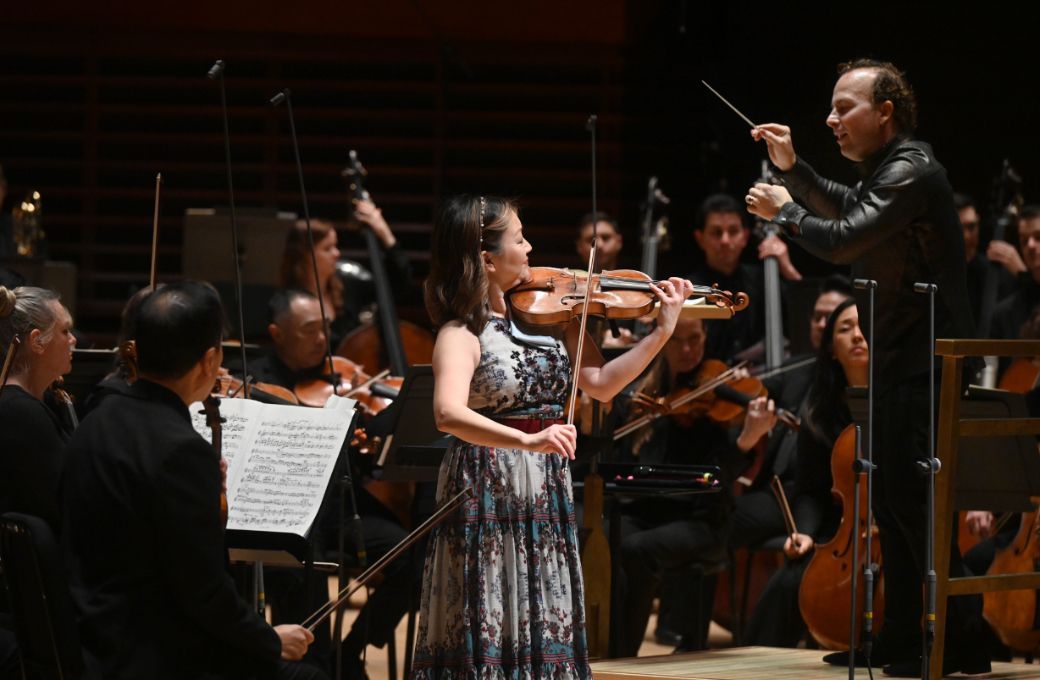Yannick Nézet-Séguin needed to pacify the crowd. Juliette Kang, First Associate Concertmaster of the Philadelphia Orchestra, had just concluded the first movement of Bartók’s Violin Concerto no. 2 when a spontaneous standing ovation erupted. Whipping around on the podium, the conductor reminded the audience that the 40-minute concerto was barely halfway over. “There is more,” he intoned dryly. “Two more movements!”

You could hardly blame them for cheering. There is always a special excitement among devoted patrons when a member of the orchestra is granted a star slot, and rarely does anyone grab these opportunities as expressively as Kang, whose distinctive tone and lively stage presence are the equal of many well-known violinists. Bartók’s Second Violin Concerto also throws a barrage of effects at its soloist, which rarely subside across the work’s extended length. Kang not only met but vanquished every challenge with supreme artistry, delivering one of the best concerto performances of the season.
Kang entered the first movement with a lovely chestnut color that neatly contrasted the forceful rhythms that Nézet-Séguin marshalled from the orchestra. She gave the impression here of Bartók in more sublime form, almost Romantic, but quickly dispelled this by delivering the familiar folk qualities for which the composer is justly prized. Kang’s lyricism extended into the second movement Andante, blanketed nicely by the string section. The finale sounded appropriately grotesque in its brusque recapitulation of material from the opening, and Kang sailed above the orchestra no matter how high Nézet-Séguin turned up the dial. Bartók’s rewritten ending, which privileges the soloist, seemed perfect for her style of playing.
After this high-wire act of a concerto, Kang returned to the stage for a subtle, refined encore: the Intermezzo from Hindemith’s Violin Sonata, Op.31 no.1.
Nézet-Séguin wasn’t going to let Kang have all the excitement though. Although Stravinsky’s Firebird suites appear regularly on Philadelphia Orchestra programs, the ensemble hadn’t touched the complete ballet score since 2019. Nézet-Séguin brought rhythmic intensity to the performance here, but the overall interpretation lacked much in the way of narrative structure – a listener appreciated, perhaps too much, how this music is tied deeply to the movement and gestures supplied by dancers. There were isolated elements to truly savor – solo lines played by Concertmaster David Kim especially, and the overall effort of the hardworking brass – but it didn’t come together as a unified whole. The concert also featured the pretty but general Eko-Bmijwang (As Long in Time as the River Flows), by the indigenous Canadian composer Barbara Assiginaak.


